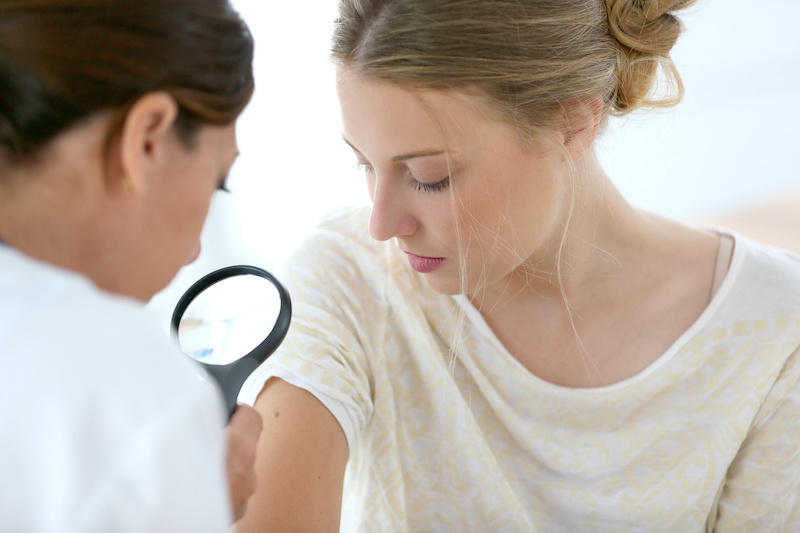UNDERSTANDING SKINCARE ISSUES FACING AGING SENIORS
Skin problems for seniors face many difficulties every day. Skin issues are often faced by aging individuals, especially those people who have more than one of these skin disorders at the same time.
Sometimes they are a natural side effect of aging. Other conditions may be side effects of illnesses or medications.
Although skin disorders can occur in any age group,they occur more commonly as people get older.
As already mentioned, skin disorders are due to genetic factors interactions with environmental factors (such as sunlight and wind), problems with the immune system, skin diseases, and reactions to medicines.
Many seniors have difficulty caring for their skin because they don’t know how to fix these top skin disorder problems:
So, we put together this initial guide to help you.
- Dry Skin
One of the most common problems that seniors face is dry skin. Dry skin can be caused by a number of factors. Skin becomes drier as water evaporates from the skin surface due to lower humidity, causing dead cells to accumulate on the outermost layer of the epidermis. The condition can become worse when the weather is cold due to air conditioning, heating, and low humidity in homes. Skin becomes loose and starts to sag because collagen protein inside the skin weakens and thins with age. Sun exposure can also cause dryness, as well as wrinkles and age spots.
What can you do to help fix your dry skin:
– Drink plenty of fluids
– Add moisture to the air with a humidifier
– Apply a moisturizer regularly
– Avoid hot water and harsh soaps
– Avoid frequent washing and exfoliating. Skin becomes thinner and more fragile as we age, so constant rubbing and scrubbing can cause broken capillaries, bruising, and increased wrinkling.
What causes dry skin:
– Skin gets drier as water evaporates from the skin surface due to lower humidity
– Skin becomes loose and starts to sag because collagen protein inside the skin weakens and thins with age
– Sun exposure can also cause dryness, as well as wrinkles and age spots
- Itchy Skin
Itchy skin is another common problem that seniors face. Skin may become itchy for many reasons, including atopic dermatitis, psoriasis, infestations (scabies), contact dermatitis (caused by coming into contact with certain substances like poison ivy), eczema, and bacterial infection.
What can you do to help fix your itchy skin:
– Avoid scratching the affected area
– Use cool, wet compresses on the itchy skin
– Apply a moisturizer to the area
– Take an antihistamine if needed
What causes itchy skin:
– Skin may become itchy for many reasons, including atopic dermatitis, psoriasis, infestations (scabies), contact dermatitis (caused by coming into contact with certain substances like poison ivy), eczema, and bacterial infection
- Skin Rashes
Skin rashes are also a common problem for seniors. Skin rashes can be caused by a variety of factors, including infections (such as chickenpox or shingles), allergic reactions, medicines, and skin diseases such as eczema or psoriasis.
What can you do to help fix your skin rash:
– Wear loose-fitting clothing
– Apply a cool, wet compress to the affected area
– Apply a moisturizer to the area
– Take an antihistamine if needed
What causes skin rashes:
– Skin rashes can be caused by a variety of factors, including infections (such as chickenpox or shingles), allergic reactions, medicines, and skin diseases such as eczema or psoriasis
- Age Spots
Age spots are another common problem for seniors. They are small, dark spots that occur on the skin as a person gets older. Age spots are caused by years of exposure to the sun.
What can you do to help fix your age spots:
– Wear sunscreen when going outside
– Use a skin lightening cream or serum
– Apply a moisturizer regularly
– Consider laser treatment for larger spots
What causes age spots:
– Age spots are small, dark spots that occur on the skin as a person gets older. They are caused by years of exposure to the sun
- Skin Cancer
Skin cancer is another common concern for seniors. Skin cancer is a malignant tumor or lesion that grows out of control. Skin cancer occurs when melanin cells in your skin grow out of control due to repeated exposure to ultraviolet radiation from the sun or tanning booths, genetic predisposition, or old age. Skin cancer can be treated if detected early on.
What can you do to help fix your Skin Cancer:
- See a skin doctor immediately for their advice
- Avoid prolonged sun exposure
– Wear sunscreen to protect your skin
– Check your skin regularly for any changes
What causes Skin Cancer:
– Skin cancer occurs when melanin cells in your skin grow out of control due to repeated exposure to ultraviolet radiation from the sun or tanning booths, genetic predisposition, or old age. Skin cancer can be treated if detected early on.
- Wrinkles
Wrinkles are another common problem for seniors. They are caused by the natural aging process, sun exposure, and smoking.
What can you do to help fix your wrinkles:
– Use a sunscreen when going outside
– Wear a hat to protect your face from the sun
– Quit smoking
– Use a moisturizer regularly
– Consider laser treatment or Botox injections
What causes wrinkles:
– Wrinkles are caused by the natural aging process, sun exposure, and smoking.

Recent Comments